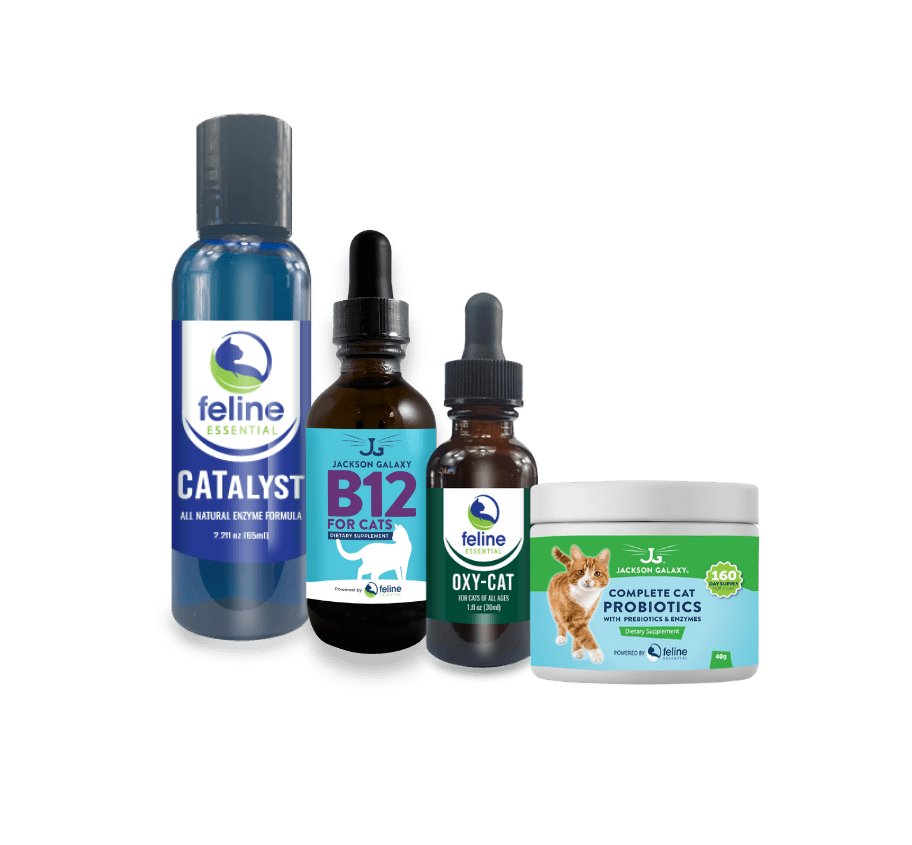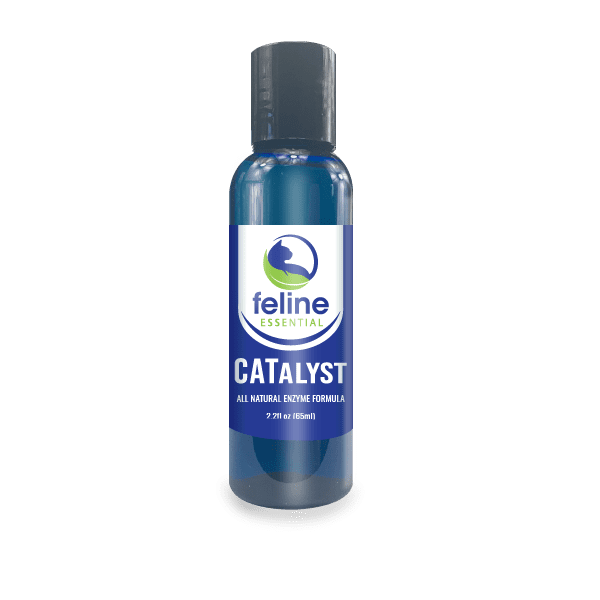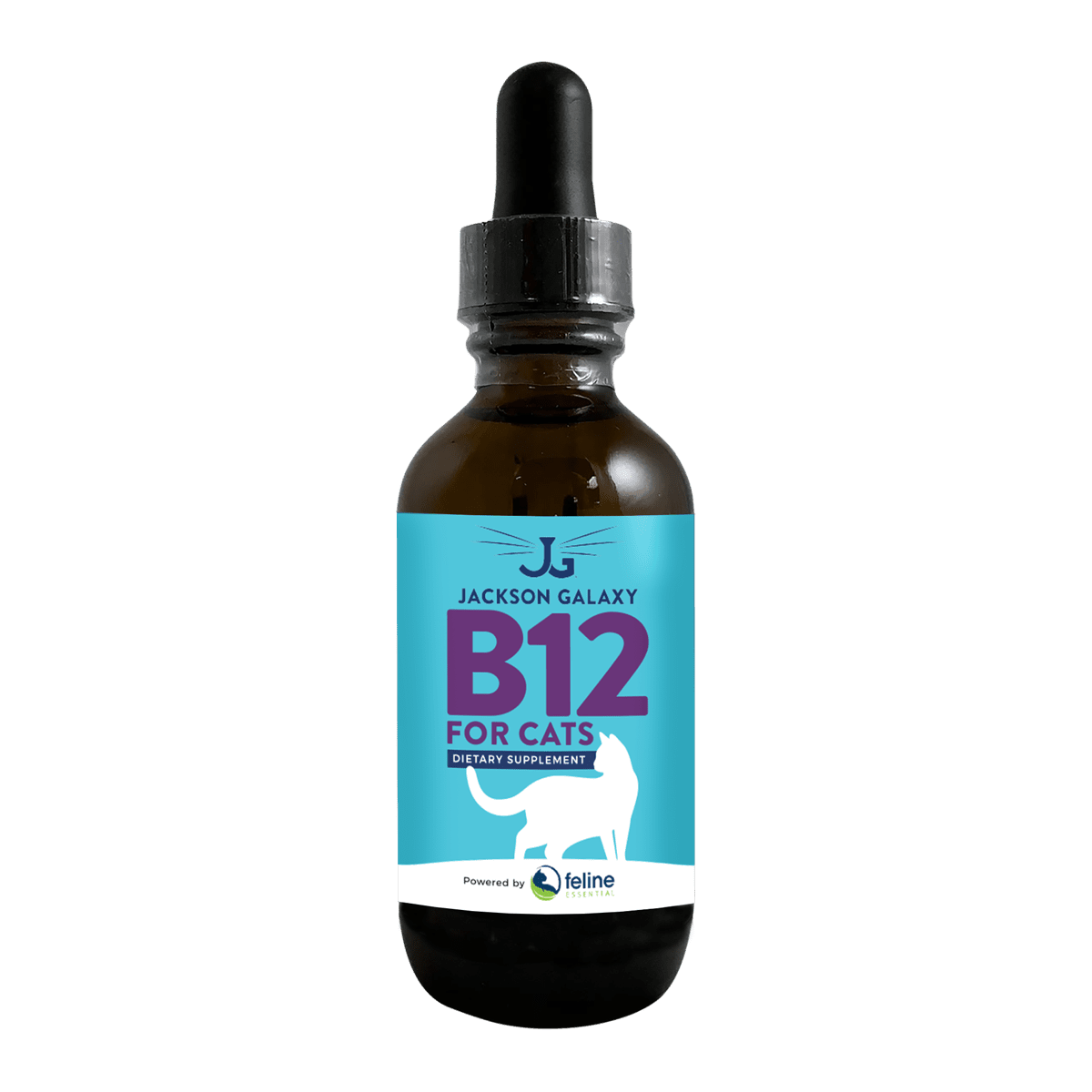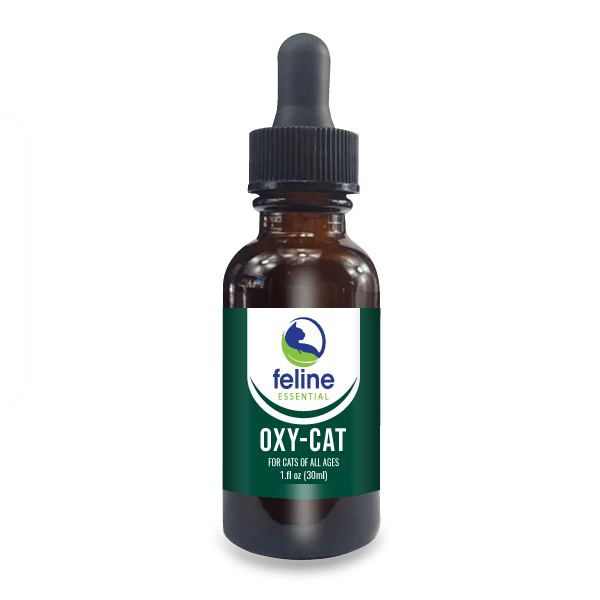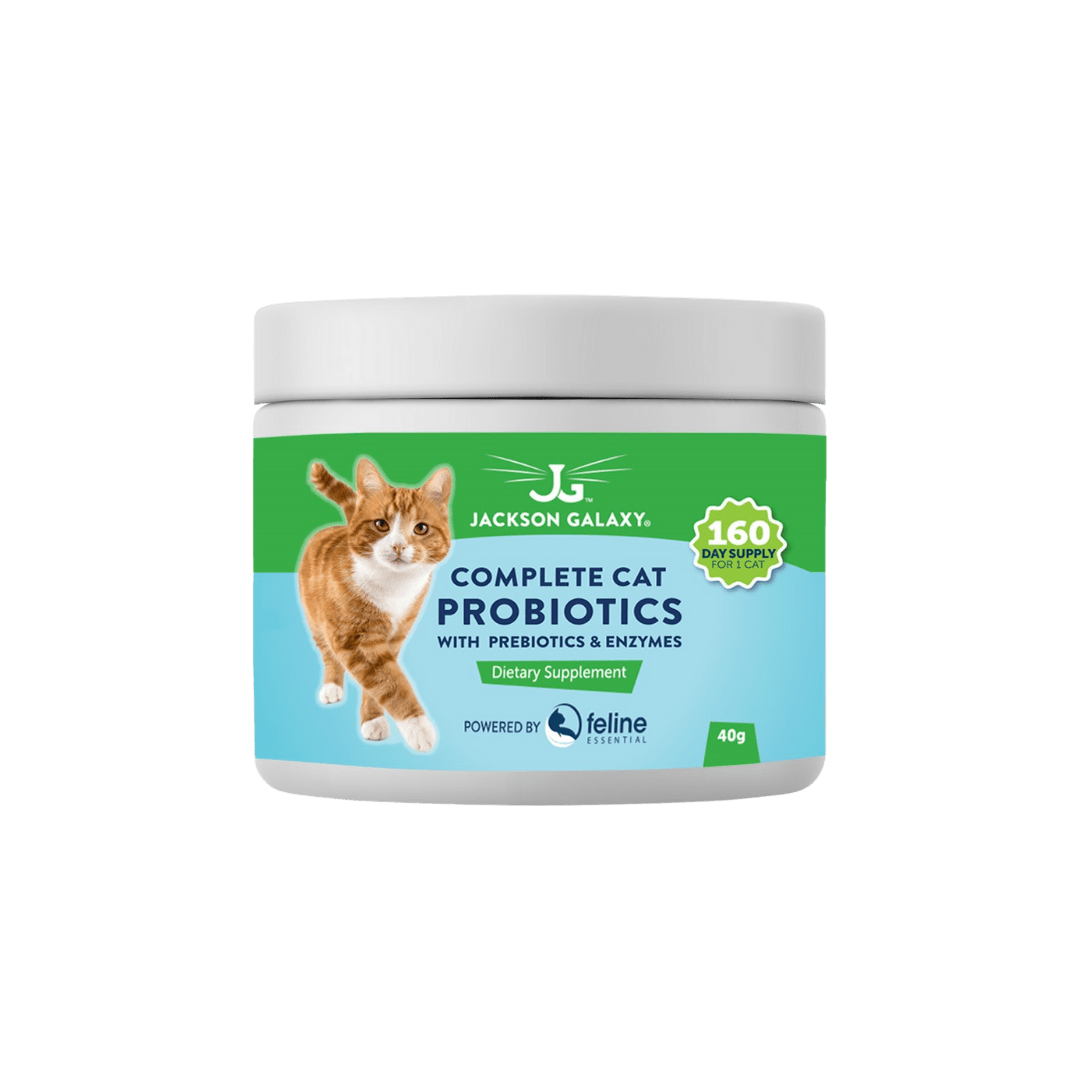Symptoms, Causes & Natural Remedies
IBS (Irritable Bowel Syndrome) and IBD (Inflammatory Bowel Disease) are two gastrointestinal conditions in cats. Both conditions can cause a range of symptoms that can impact a cat’s quality of life. IBD in cats is typically a generalized diagnosis when your kitty has mild to severe gut inflammation. Unfortunately many cats struggle with symptoms of irritable bowel for prolonged periods of time without real relief, causing IBS to become chronic (IBD). Even worse, the commonly prescribed medications for IBD in cats come with side effects that end up making the GI tract less healthy than before the meds were administered.
If your cat suffers with symptoms of IBD or IBS, you’ve come to the right place. We have worked with some of the top integrative and holistic veterinarians in the world to create a plan of recovery for your kitty. Please continue reading below to find a protocol that will work best for your cat’s gut health issues.
Part 1: IBS (Irritable Bowel Syndrome)
Symptoms:
The symptoms of IBS in cats may include:
- Diarrhea
- Constipation
- Abdominal pain
- Vomiting
- Loss of appetite
- Weight loss
- Flatulence
Causes:
The exact cause of IBS in cats is not well understood. However, some factors that may contribute to the development of IBS include stress, food intolerance, and intestinal bacterial overgrowth.
Natural Treatments for IBS in Cats:
There are several natural treatments that can help manage IBS in cats, including:
- Probiotics: Probiotics can help restore the natural balance of bacteria in the gut and improve digestion.
- Fiber: Adding fiber to the cat’s diet can help regulate bowel movements and improve digestive health.
- Stress management: Stress can worsen the symptoms of IBS, so it’s important to reduce stressors in the cat’s environment.
- Herbal remedies: Certain herbs, such as slippery elm and marshmallow root, can help soothe the digestive tract and reduce inflammation.
Since housecats don’t get prey animal fiber in their meals, it can be beneficial to add fiber to an IBS kitty’s diet to help keep things moving smoothly through the digestive tract — not too fast, and not too slow. Good options include:
- Psyllium husk powder: 1/2 teaspoon per 10 pounds of body weight, 1-2 times daily on food.
- Prebiotic-rich veggies: pureed asparagus, sunchokes, dark green leafies, 1 teaspoon per 10 pounds of body weight, 1-2 times daily with food.
- Canned or steamed 100% pumpkin: 1 teaspoon per 10 pounds of body weight, 1-2 times daily on food.
- Acacia fiber: 1/8 teaspoon per 10 pounds of body weight, 1-2 times daily.
If your cat struggles with extra-dry stools, adding a GI lubricant, in addition to fiber, can also help:
- Coconut oil: 1/2 teaspoon per 10 pounds of body weight, 1-2 times daily (organic and unrefined).
- Aloe juice (not the topical gel): 1/4 teaspoon per 10 pounds of body weight, 1-2 times daily on food.
Part 2: IBD – Dr. Odette Suter’s Protocol
The following information is provided to you by Dr. Odette Suter, DVM. Dr. Suter focuses on identifying and addressing the root cause of illness in pets, leading thousands of animals to healing and vibrant health.
Symptoms of IBD in Cats
- Chronic intermittent vomiting
- Hairballs
- Chronic diarrhea
- Mucus and/or blood in stool
- Picky eater/poor appetite
- Chronic pancreatitis
- Low energy
- General malaise
- Weight loss
- Gas (flatulence)
- Poor fur coat
- Abdominal pain
- Gurgling or rumbling abdominal sounds
Causes of IBD in Cats
- Microbiome imbalance
- Food sensitivity
- Drugs and toxin exposure
- Stress
- Hormone imbalance
- Neurological conditions affecting motility.
- Overstimulated and dysregulated immune system (e.g. vaccines)
- Autoimmune response
- Nutrient deficiencies that lead to abnormal production of digestive juices
- Chronic pancreatitis
- Liver issues
- Chronic ongoing EMF exposure
- Genetic predisposition
Natural Treatment for IBD In Cats
Before treatment can begin, Dr. Suter suggests to begin with testing:
“Start with testing – without it, you don’t know what’s causing the inflammation and you may miss out on crucial information that could save you and your cat precious healthy time and money!”
- CBC, Chem, UA
- Intestinal parasites
- Microbiome (Animal Biome)
- Food sensitivity (Nutriscan)
- Hormones (adrenals) and IgA (immune system)
- Assess stressors (big deal!)
- If this is a longer term issue, abdominal ultrasound and endoscopy with biopsy may be needed
- Lymphoma panel (VDI)
“Once testing is completed, treat accordingly.”
If testing determines IBD:
- Slowly switch to a species appropriate diet
- Remove offending foods and ingredients – also check supplements and drugs! Work with your vet. DO NOT stop meds abruptly without supervision.
- Filtered water
- Ion Gut
- Fecal transplants (rectal or oral)
- Digestive enzymes
- Soothing herbs if needed (slippery elm, marshmallow root)
- Prebiotics if needed – based on biome results
- Replenish hormones if needed – based on hormone testing
- Reduce stress and offer environmental enrichment (for you as well)
- Grounding (paws in the soil, sun exposure)
- Body work (chiropractic, visceral manipulation, etc.)
- Eliminate all environmental toxins that you can control (including toxic preventatives, pesticides, EMFs – like WiFi and cell phones)
Recommended Diet for Cats with IBD
Species appropriate, low carb and moist food that takes food sensitivities into consideration. If your cat is picky, it may take months to switch the diet. Patience is key – and it’s worth it! Never fast or withhold food from a cat!
Other Natural Remedies for Cats with IBD
Providing a cat with a variety of dried herbs that they can self select can be beneficial on many levels:
- Chamomile
- Marshmallow root
- Catnip
- Oregano
Reference Links from Dr. Suter:
